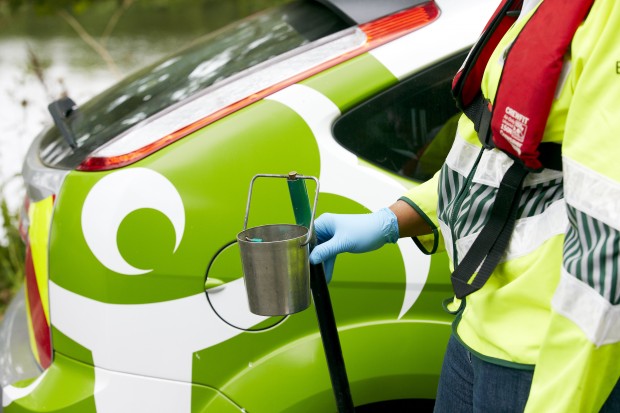 I have spent many days in all seasons and a variety of weather conditions in the Suffolk seaside town of Southwold. This year I will be spending time there with my granddaughter, who is currently 19 months old. Her love of the water is likely to overcome my reticence in braving the coldness of the North Sea. I became used to the warm waters of the Mediterranean having lived in Cyprus for 4 years.
I have spent many days in all seasons and a variety of weather conditions in the Suffolk seaside town of Southwold. This year I will be spending time there with my granddaughter, who is currently 19 months old. Her love of the water is likely to overcome my reticence in braving the coldness of the North Sea. I became used to the warm waters of the Mediterranean having lived in Cyprus for 4 years.
Two decades ago, my reluctance to swim in the sea in certain areas of England would have been for different reasons. In the 1980s, in some places raw sewage was routinely discharged into the sea and levels of bacteria were high.
We have come a long way. Over the last number of years, the quality of bathing water has improved significantly, driven largely by EU Directives. In 1976, the Bathing Water Directive set high standards for the quality of bathing waters. Then in 1991, the Urban Waste Water Treatment Directive was introduced to ensure that sewage was properly treated before discharge.
Last year, 99.5% of bathing waters met minimum standards compared to only 65% in 1988. This is good news for the environment and the economy, with England’s seaside tourism worth around £3.3 billion each year.
Future challenges
The Environment Agency has an important job to do testing, reporting on and communicating the quality of England’s bathing waters. By the time the season ends on 30 September, we will have taken and analysed more than 8,000 bathing water samples from 417 designated bathing waters. This year, the way we classify this information is changing as a result of the revised Bathing Water Directive.
The bathing water quality standards are more stringent in the revised directive. Bathing waters will be classified as ‘excellent’, ‘good’ ‘sufficient’ or ‘poor’. The classification will be based on 4 years’ worth of monitoring data – 80 samples rather than 20 as previously. These tighter standards may mean a drop in the headline compliance figure, but this doesn’t mean that water quality has got worse. The directive requires that all bathing waters are at least at ‘sufficient’ standard by the end of 2015.
The revised directive also changes how data is presented so that much better water quality information is available to the public. Local councils will need to put up signs advising against bathing if the water fails to meet the standards. To help people plan their trips to the beach, the Environment Agency publishes details on the quality of bathing water and sources of pollution on its bathing water app on GOV.UK. We are also providing real time warnings of the risk of poorer water quality at over 150 bathing waters this year. This means that people can make more informed choices on bathing in the sea.
Meeting the requirements of the directive will help further improve bathing water quality. We will be working hard with others to achieve the new standards and, in doing so, help protect people’s health. Beaches are not sterile places and various factors influence bathing water quality and the beach environment. These sources include sewage, agricultural and urban diffuse pollution, as well as fouling from dogs and birds. Significant rainfall, such as experienced in 2012, can also have a marked impact on water quality as it flushes pollutants from farmland and streets and overwhelms sewers, leading to contaminated water discharging into the sea.
A national bathing waters group that includes representatives from the water companies, the farming community, NGOs, local councils and Defra together with the Environment Agency will address the challenges that these new standards will bring. With everyone playing their part we will make sure that as many bathing waters as possible meet the required standard on a continuing basis.

Leave a comment